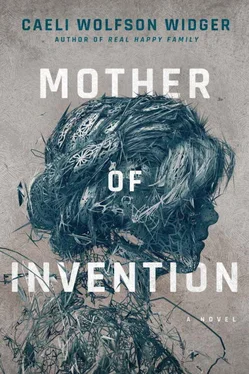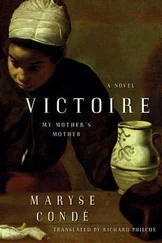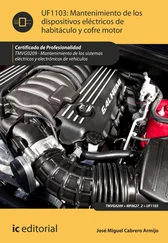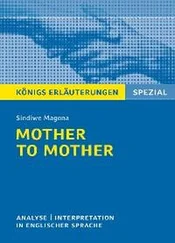“Milford’s such a stick-in-the-mud,” said LaTonya.
“His bedside manner’s not the warmest,” agreed Tessa. “But he’s a superstar. He has a Lasker. The most coveted prize in clinical medicine. He ran the Mayo Clinic for seven years. He’s considered one of the top embryologists in the world.”
“I like Gupta,” said Kate. “She’s still going to be there when Milford does our transfers, right?”
LaTonya feigned a shudder. “She’d better be. Otherwise I’m not letting Milford up in there.” She gestured between her legs.
“Of course she’ll be there,” Tessa went on. “And speaking of credentials, Dr. Gupta was part of the team that invented the artificial womb. She’s won a National Medal of Science. Dr. Akabe was a part of the group in Japan that converted skin cells into eggs and sperm.”
“We know all this, Tess,” said Kate.
“I know you do. But I’m just reminding you of the caliber of your staff. They’re brilliant doctors. They’ve thought of all possible aberrations in the Trial. Put a contingency plan in place for every single one. They’ve designed Seahorse to protect you, at any cost. I would never—ever—have brought you here otherwise.”
“But what if—” started Kate.
“No, Kate,” said Tessa. Firm, gentle. “Optimism. It’s the only logical position. TEAT was already in year four of intensive clinical tests when Seahorse acquired it. I’ve personally seen it applied successfully to dozens of different species, including chimps. Ninety-eight percent overlap with human DNA.”
“Two percent non-overlap,” said Kate.
“Kate. Remember that you held the baby TEAT chimps in your own hands. In fact—” Tessa pulled her phone from a pocket and held up a recent picture of Esther, one of the original TEAT baby chimps, now full-grown. In the photo, she was munching an apple.
“Awww,” said Kate, smiling.
“I was just up in Eureka, at the Animal Preserve, on visiting rounds last week,” said Tessa. “The whole community is thriving, mothers and children. You’re welcome to have a look at the documentation.”
After a pause, LaTonya said, “I don’t need to see it. I’ve got the faith.”
“Me, too,” said Kate.
“Someone has to be first,” said Tessa. “Think of Margaret Sanger and Lesley Brown. They’re the reason birth control and IVF became everyday options. You’re following in their footsteps.”
“Courage is the mother of progress,” said LaTonya, raising her coffee cup.
“Radical precedes ordinary,” said Kate, without missing a beat. “Vision is nothing without activism.”
Tessa smiled. All were Pushing Through quotes she’d often cited to the Cohort.
“Yes, yes, and yes,” she said. “Now we’re getting somewhere.”
Down the hall, a door opened and closed.
“Gwen’s awake,” said Kate.
Momentarily, Gwen Harris appeared in the common area, already dressed in khakis and Birkenstocks, holding an insulated travel mug, long brown hair wet from the shower. When it dried, Tessa knew, gray threads would appear, suggesting Gwen’s age, which was forty-seven.
“Morning, all,” said Gwen, eyes gliding past Tessa. “Already chanting the PT mantras, are we?”
Gwen was the least agreeable Cohort member. She was the least moved by the deeper ideas of Seahorse, far less of a fan of Pushing Through than Kate and LaTonya, who both owned first editions. Like the two younger women, Gwen wanted a child as quickly as possible, but unlike them, her career did not factor into her decision. She’d already retired from a twenty-year career teaching high school math in Texas, though she’d never “had” to work; she was an heir to her family’s oil wealth. From Gwen’s application, Tessa knew that her longtime partner, Linda, had died of a swift-moving ovarian cancer five years ago, shortly after they’d begun the search for a sperm donor. The plan had been for Gwen to donate the eggs and Linda to carry the child, a plan cruelly undone by Linda’s illness. Gwen had written in her personal statement that since Linda’s death, she’d begun to crave a biological child with brutal intensity . That was the phrase Gwen had used in her application, in a paragraph so honest and raw it had given Tessa a lump in her throat.
But her personal statement wasn’t the reason she’d fought so hard to admit Gwen to the Trial. And it had been a fight: Luke and the docs disliked the fact that Gwen was approaching fifty. They were concerned with the risks her age would bring to the Trial. But her age was precisely the reason Tessa wanted her: when Seahorse became a mainstream elective option, older mothers would likely be widespread early adopters. Women whose biological clocks ticked louder by the day, who were less physically resilient than their younger counterparts. Who was Seahorse—especially TEAT—for, Tessa had argued with her team, if not women like Gwen: over forty, single, reasonably healthy, struck in midlife with the desire for a child?
Tessa had fought hard to bring Gwen here and was proud to have won. She just wished she liked Gwen more. Tessa often had to remind herself she’d titled an entire chapter of Pushing Through “Against Likability.” Gwen’s curmudgeonliness, her lack of interest in making other people comfortable, was a quality that, in theory, Tessa wanted to admire.
“Morning, Gwen,” said Tessa brightly. “How are you?”
“Tragic,” said Gwen. “I’m about to drink my last cup of coffee for nine weeks.” She nodded at her travel mug. “I’m in a state of preemptive mourning.”
“Don’t remind me,” said LaTonya. “I’m trying not to think about it.”
“Six ounces of coffee is permitted,” said Tessa. “Or ten of green tea.”
“My heart says yes,” said Gwen, sardonic. “But my head says no.”
Kate nodded. “I didn’t come this far to screw things up over a little caffeine.”
“Me neither,” said LaTonya, sighing. “Maybe my teeth will get whiter.”
“That’s not possible,” said Tessa. “You could do a toothpaste commercial right now.”
“Thanks, honey,” said LaTonya, flashing her snow-white smile at Tessa. Tessa smiled back. She enjoyed the feeling of inclusion in the Seahorse Cohort, that LaTonya called her honey . Most of her social interaction in the past decade had been with colleagues and direct reports; she was often friendly with them, but she kept a layer of reserve, a clear professional boundary. With the Cohort, it was different. In order to keep them focused and calm—fully committed—she’d had to refrain from acting as their manager. She’d had to become their friend.
Positive manipulation, Luke called it.
But Tessa didn’t feel manipulative. Not even toward Gwen. She felt propelled by a genuine camaraderie, an unfamiliar tenderness. She couldn’t remember the last time another woman called her honey . Tessa emphasized the importance of female friendships— grow them like investment accounts, she’d advised in Pushing Through —but the truth was, she didn’t have that many herself. Not since her days at Weldon, two decades ago. There she’d made dear friends—her roommates, her lacrosse teammates—but those women were scattered across the country and the world now, immersed in careers, raising families. Tessa kept in touch with them, but she’d lost the dailiness of their friendship long ago. She missed it. The Cohort, in some ways, had brought it back.
Gwen set her coffee down on the table, too hard, and leaned back on the couch. “Fucking progesterone,” she said with a groan. “I feel like a dog that just swallowed a ham. Bloated and lethargic. And it’s eight thirty in the morning.”
Читать дальше












